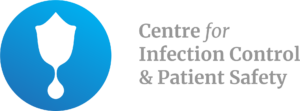SayAMR Hackathon 2025
Application close in





SayAMR Overview
The SayAMR Language Hackathon provides an opportunity for multidisciplinary undergraduate and graduate students in Nigerian universities to develop terminologies for AMR in these main languages – Hausa, Igbo, Pidgin and Yoruba.
By translating AMR into these 4 languages, Nigerian university students will:
Watch Detailed Video about The SayAMR Hackathon
How To Apply?
Eligibility Criteria
Frequently Asked Questions
Everything you need to know about the SayAMR Language Hackathon project
Who can participate in the hackathon?
Participation is open to teams of multidisciplinary undergraduate and graduate students within an accredited University (federal, state, or private)
- A team must include 4-8 multidisciplinary undergraduate and graduate students within an accredited University (federal, state, or private), and at least 1 Linguistics faculty member. Where a Linguistics department does not exist, the faculty member may come from any closely related department.
- At least 25% of the team should be students from Linguistics or related language-focused disciplines such as English, Nigerian Languages, or any programme involving language, writing, or translation.
- Students must be within 18-35 years of age
- Each team must be endorsed by the Vice Chancellor or the Vice Chancellor's delegated authority
- Each team must submit translations in at least one of the four approved languages—Hausa, Igbo, Pidgin and Yoruba
Can a team submit for more than one of the approved languages?
Yes, but you must fill out a separate submission form for each language.
How are the winning teams selected?
A panel of judges comprising of AMR experts, Nigerian linguistics experts, cultural advocates, AMR survivors, Academia and media will evaluate entries based on:
- Accuracy to the concept of AMR
- Clarity and simplicity of translation
- Cultural and linguistic relevance
- Potential for public adoption
What are the benefits for participants and winners?
- Gain hands-on experience in public health communication
- Receive certificates of participation and recognition
- A cash prize for each winning team
- National, public acknowledgement
- Featured in national and international AMR awareness campaigns
- Your translations adopted in advocacy, policy, and educational materials
Who owns the ideas or names submitted to the SayAMR Hackathon?
All names, ideas, and materials submitted to the SayAMR Hackathon become the property of the Dr. Ameyo Stella Adadevoh (DRASA) Health Trust, in collaboration with NCDC, CICaPS, and CVCNU. By submitting, participants agree that DRASA and its partners may use, adapt, modify, or trademark any submission without needing further permission, credit, or compensation.
Why is this important?
This ensures that the selected name can be freely used, registered, and promoted across all campaign materials without future ownership disputes or conflicts of interest.
Do I keep any rights to my submission?
No. By submitting, participants permanently transfer ownership of their submitted names and ideas to DRASA and its partners.
What if I have a conflict of interest?
Participants must declare any actual or potential conflict of interest within their submission form and also send details by email to amr@drasatrust.org. Any conflicts that arise after submission should be disclosed promptly through the same email address.
© 2025 Dr. Ameyo Stella Adadevoh Health Trust - All Rights Reserved.




